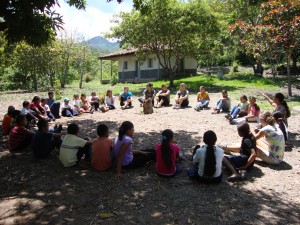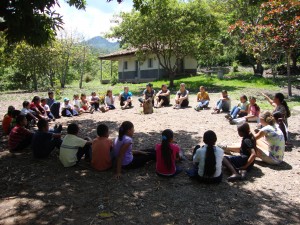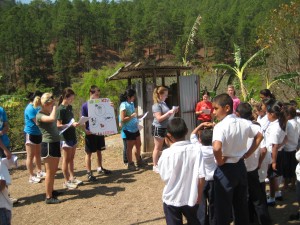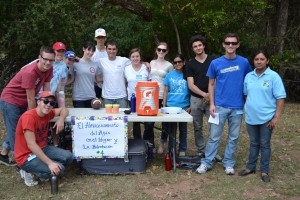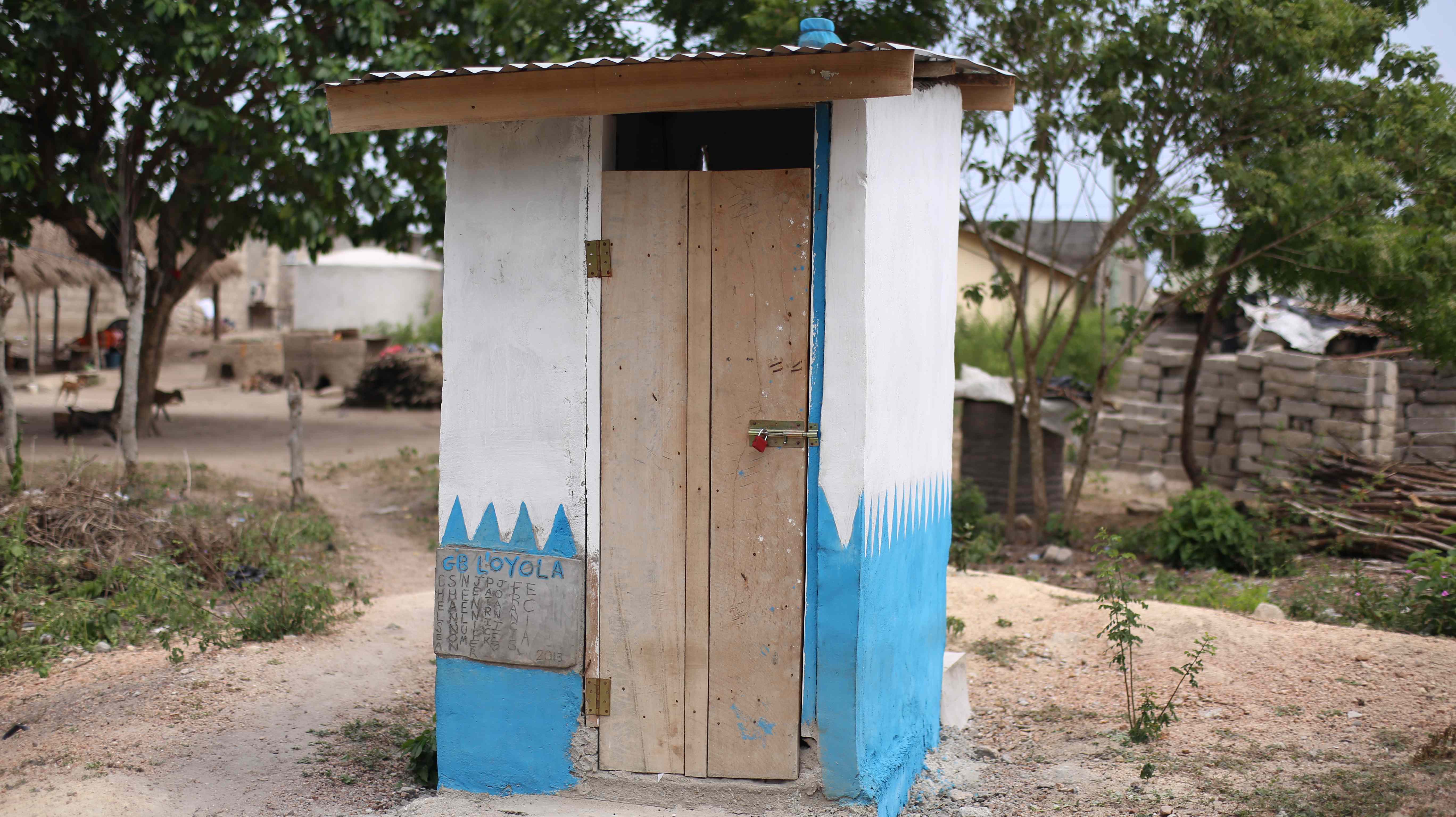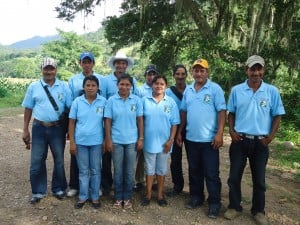Water Brigades and Public Health Brigades are combining forces to launch the first ever Health and Hygiene Fair in the community of El Cantón, Honduras on January 12, 2012. The Health and Hygiene Fair will be an afternoon event for community members, especially children, to learn about health and hygiene topics from Water and Public Health Brigaders.
Volunteers will get the opportunity to experience Honduran culture and connect with community members like never before! Instead of teaching multiple education sessions in the local school, the community-wide fair will allow Water and Public Health volunteers to work together to reach an even greater audience. The fair will consist of booths with information and activities regarding health and hygiene related topics, music, skits, and more!
Eight Brigade groups will be participating in this interactive 2 hour event, where students will present on topics such as basic first aid, hand washing and oral hygiene. Members of El Cantón’s Basic Sanitation Committee and Global Brigades staff will also be involved to help the event run smoothly. The fair will be open to the entire community of El Cantón, and will be especially advertised to school children and their families. Additionally, local community leaders will be coming to the event to support us!
Brigade groups from UC Berkeley, Columbia University, Boston University, Washington University, University of Virginia, and Saint Louis University are currently preparing one booth each for the fair, and are planning what kind of activities, information sheets, props, and skits they will present to the community. Volunteers are also encouraged to bring items that can be distributed to the children at the fair. The goal is to provide each child with a tool that relates directly to what they just learned and will help reinforce the discussed topic.
(Former Public Health and Water Brigaders conducting educational talks and group presentations to community members)
The eight main topics to be presented at the fair are:
- Safe Water Storage and Personal Hydration: Volunteers will present information about why storing and handling treated drinking water correctly at the point of use is crucial for avoiding re-contamination and making it safe to drink, as well as information on why staying hydrated is essential for personal health.
- Oral Hygiene: Volunteers will teach children about the importance of caring for teeth, discuss cavities and plaque, and how to care for teeth, including proper brushing and flossing techniques.
- Household Sanitation: Volunteers will discuss the infrastructure and practices within and around the home that can keep a person’s external environment healthier and more hygienic by controlling human and animal waste and minimizing the ways in which germs are transmitted from waste to humans.
- Hand-Washing and Nail Care: Volunteers will teach community members about the importance of washing hands to prevent the spread of illnesses, how to wash hands effectively, and when to wash hands to prevent germs, bacteria, and parasites from spreading.
- Healthy Eating and Food Preparation: Volunteers will teach community members about how to wash and prepare foods to prevent contamination, the importnace of eating a healthy diet, and how to cook and clean up raw meat.
- Waste Disposal- Composting and Recycling: Volunteers will discuss the importance of cleaning up trash to reduce the spread of disease, will teach community members about the negative impact of trash on the environment, and how to compost.
- Basic First Aid: Volunteers will present information on basic wound care and when community members need to go to the doctor.
- Personal Hygiene: Volunteers will teach community members about germs, bacteria, and parasites (what they are, how they are spread, and what can be done to prevent them from spreading).
About El Cantón:
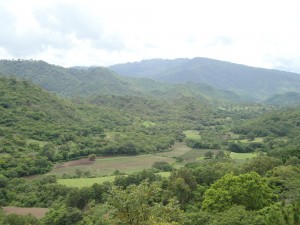 El Cantón is a rural community in the mountains of the municipality of Teupasenti, Honduras. It consists of two neighborhoods: El Cantón, which is the central sector of the community, and La Ceibita, which is the high sector of the community, which are home to a total of about 550 people and 91 homes. There are two schools, one in El Cantón and one in La Ceibita, where education is available for 1st through 6th grades. Between the two schools, there are about 70 students. There are also about four students who attend 7th, 8th, and 9th grade classes through an afternoon program called Educatodos. El Cantón is an agricultural community that raises corn and bean crops, largely for subsistence, and many families ear money by cutting coffee during the coffee harvesting season between December and February.
El Cantón is a rural community in the mountains of the municipality of Teupasenti, Honduras. It consists of two neighborhoods: El Cantón, which is the central sector of the community, and La Ceibita, which is the high sector of the community, which are home to a total of about 550 people and 91 homes. There are two schools, one in El Cantón and one in La Ceibita, where education is available for 1st through 6th grades. Between the two schools, there are about 70 students. There are also about four students who attend 7th, 8th, and 9th grade classes through an afternoon program called Educatodos. El Cantón is an agricultural community that raises corn and bean crops, largely for subsistence, and many families ear money by cutting coffee during the coffee harvesting season between December and February.

